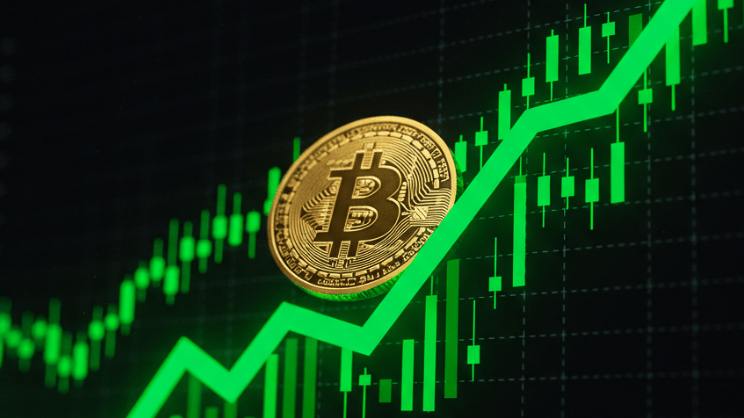
An asset for all classes: What to expect from Bitcoin as a legal tender

New tech that reduces costs of international payments would “be a boon for poor countries that rely on remittances” — but will BTC as legal tender fix that?
For much of its life, Bitcoin (BTC) has been viewed mainly as a speculative financial instrument, but El Salvador’s dramatic move in making BTC a legal tender is a reminder that cryptocurrencies can play a role in uplifting the world’s less-well-off citizens.
Two surprising facts emerged on the global stage at the start of June: First, 70% of El Salvador’s population do not have bank accounts, and second, remittances — i.e., money sent home from workers abroad — are fueling El Salvador’s economy, accounting for an astonishing 23% of the gross domestic product.
In this regard, Chainalysis was prescient last year when it described the global remittance problem in a blog — perhaps even anticipating a move like El Salvador’s: “Given the importance of remittances in the region, Latin America is one place we would expect to see such activity.”
El Salvador’s president, Nayib Bukele, declared that as a result of the new law, “Bitcoin will have 10 million potential new users” in El Salvador, adding that BTC is the “fastest-growing way to transfer $6 billion a year in remittances.”
The new law was met with skepticism among some mainstream economists, however, who deemed it unworkable. Johns Hopkins University’s Steve Hanke went so far as to say that it could “completely collapse the [Salvadorian] economy.”
But within the cryptocurrency and blockchain community, the move was applauded. Sergey Nazarov, co-founder of Chainlink, commented to Cointelegraph, “The legalization of Bitcoin as a national currency is a uniquely significant event in the history of money, society and globalization,” while Wladimir van der Laan, a Bitcoin core developer and “maintainer,” told Cointelegraph that El Salvador’s action “is absolutely a milestone, also in the sense it is something never tried before. I hope it will be for the best.”
Eloisa Cadenas, co-founder of PXO Token — a stablecoin pegged to the Mexican peso — also underlined the new law’s importance. “It marks a different way of looking at Bitcoin and the crypto industry. For much of its history, Bitcoin has struggled against the notion that its principal use is to launder money or ‘commit fraud,’ with relatively little said about its positive qualities,” she told Cointelegraph. But here, “Bitcoin is helping people who really need it.”
But making Bitcoin legal tender — which means it can be used to pay taxes, discharge debts and buy goods in stores — carries certain risks. Eswar Prasad, a professor of economics at Cornell University and senior fellow at the Brookings Institution, told Cointelegraph:
“Relying on a cryptocurrency that has unstable value and high transaction costs as a nationally sanctioned medium of exchange seems an act of desperation. A stablecoin backed by a major reserve currency would be a better option for a country whose currency and central bank lack credibility.”
Prasad wasn’t ruling out all blockchain-related solutions with regard to cross-border payments, acknowledging that “new financial technologies that hold out the promise of reducing costs and frictions of international payments would certainly be a boon for poor countries that rely on remittances from their citizens working abroad,” including “blockchain technology and its variants,” but decentralized cryptocurrencies like Bitcoin “are unlikely to become the main vehicles for cheap, quick and efficient cross-border financial transfers.”
What is legal tender?
Legal tender is a somewhat archaic term and often misunderstood, and it can mean different things in different parts of the world. In the United States and the United Kingdom, for instance, retailers are not required by law to accept legal tender — i.e., the dollar and pound sterling, respectively — but El Salvador’s retailers must accept BTC for payment under the new law. As president Bukele explained, as reported by Reuters:
“If you go to a McDonald’s or whatever, they cannot say we’re not going to take your bitcoin, they have to take it by law because it’s a legal tender.”
Legal tender basically “means that a government has declared a type of money receivable for taxes, and it is legal to use the money in contracts and to denominate goods and services in it,” Franklin Noll, a monetary historian and the president of Noll Historical Consulting, told Cointelegraph.
A nation typically brings in a foreign currency as legal tender for three reasons, Noll continued, “The native currency is too volatile in value, there is a shortage of the native currency, or the native currency is not useful in foreign transactions or trade.”
But El Salvador has no currency of its own, it is “dollarized” — i.e., it uses the U.S. dollar for all transactions — so currency volatility or foreign trade is not an issue. “This suggests the problem is a shortage of cash” and the country’s lack of banking structure, speculated Noll, further adding:
“Probably, El Salvadoreans have been gravitating to Bitcoin for some time as an alternative currency, which ameliorated the cash/electronic cash shortage while providing for lower-cost remittances at the same time. I have to stress that I do not know this for certain.”
Is volatility still an issue?
But Bitcoin is notoriously volatile, and this could introduce some problems. People don’t want to spend BTC when its price is rising, and retailers don’t want to accept Bitcoin when its price is falling. For this reason, economist John Hawkins, writing in The Conversation, surmised that “making Bitcoin legal tender could help destabilise El Salvador’s economy,” adding, “Things would have been simpler if El Salvador had adopted a ‘stablecoin’ whose price is fixed at one US dollar.”
It may be difficult to find a workable exchange rate, too, Alistair Milne, crypto skeptic (not to be confused with Alistair Milne, a Bitcoin evangelist based in Atlanta, Georgia) and a financial economics professor at Loughborough University, told Cointelegraph.
If the law doesn’t require a particular exchange rate against the U.S. dollar, then, according to Milne, “firms will protect themselves against the risks of accepting BTC by setting a quite adverse exchange rate. […] So, technically, they accept BTC, but no one would actually pay with BTC.”
But if the law specifies a particular exchange rate, for example, “the average exchange rate over a period of, say, 10 minutes before the time of the transaction as obtained from the many standard crypto websites,” then “the costs and risk of exchange then fall on the firms receiving BTC” — though that might appeal to those receiving BTC as a remittance payment from overseas. Milne continued:
“Bottom line, even if the law is enforceable with a stated exchange rate favorable to the purchaser, I doubt even then that many transactions in El Salvador will take place in BTC.”
Which country could be next?
El Salvador is one of the few nations without its own sovereign currency and so has less to forfeit by making BTC legal tender, no loss of “seigniorage” — i.e., the profit made by a government by issuing currency, for example. So, maybe it won’t have many followers, but Nigel Green, CEO and founder of deVere Group, disagrees. “Where El Salvador has led, we can expect other developing countries to follow. This is because low-income countries have long suffered because their currencies are weak and extremely vulnerable to market changes and that triggers rampant inflation,” he said in a June 9 press release.
Will others follow? “Without a doubt,” answered Cadenas, especially those with emerging economies, though they are likely to wait for some first results out of El Salvador. “Nigeria could be the next,” though she would also like to see Mexico, her native country, commit to something similar “due to the amount of remittances entering the country.”
If remittances as a share of GDP were the only criteria, Honduras might also be a candidate. Like El Salvador, its remittances exceeded 20% of gross national product in 2019, according to Pew Research, “among the highest shares in the world.” Mexico, by comparison, had only a 3% GDP share, but its gross numbers are high, $42.9 billion in 2020, according to the World Bank, behind only China and India. Most Latin American remittances are sent from the United States.
Prasad, however, was dismissive of the notion that other nations might soon follow: “El Salvador’s adoption of Bitcoin is highly unlikely to set off a wave of the cryptocurrency’s adoption as national legal tender by other countries. The flaws and inefficiencies of decentralized cryptocurrencies are too great for them to become viable substitutes for fiat currencies issued by central banks.”
Noll, while doubtful that many other countries would adopt Bitcoin as legal tender, said that “crypto has opened up many options for smaller countries to pursue their own monetary agenda, one that is tailored to their needs.” He offered as examples the Bahamas’ Sand Dollar — the world’s first central bank digital currency — and the Marshall Islands’ blockchain-based currency, SOV. He added:
“There is no reason a country cannot establish their own legal tender stablecoin or adopt a pre-existing one. So, I would see El Salvador’s adoption of Bitcoin as part of a trend rather than a milestone.”
More Bitcoin adoption globally?
As noted, El Salvador’s president was projecting that Bitcoin could have 10 million new users as a result of the law — based on adding El Salvadorans working abroad to his nation’s 6.5 million population, one presumes.
Given that there are an estimated 71 million Bitcoin users worldwide — among 106 million global cryptocurrency users — according to a February 2021 Crypto.com report, that would mean 14% BTC adoption growth from just a single Central American country. What if some other Latin American countries with high remittance shares, including Mexico, were to follow? Would crypto adoption surge?
Related: Adopting the Bitcoin standard? El Salvador writes itself into history books
Chainlink’s Nazarov thinks just that, telling Cointelegraph, “Just like emerging markets leapfrogged past landlines straight to mobile phones, I believe that these markets’ new-found internet connectivity, combined with the internet native capabilities of Bitcoin, DeFi and smart contracts, makes them the perfect place for large-scale global adoption.” “This is just the beginning of Bitcoin, DeFi and smart contract adoption in emerging markets, and as the benefits of this historic decision are shown to be true, even more countries will follow El Salvador’s example,” he concluded.
Cadenas told Cointelegraph that Bitcoin is now evolving as a “common asset that is being used by all socioeconomic levels,” not just the wealthy, adding:
“It is wonderful to see that Bitcoin is helping people who really need it, that it is creating financial inclusion, and that it is not only to make money for the treasuries of companies.”
Go to Source
Author: Andrew Singer









